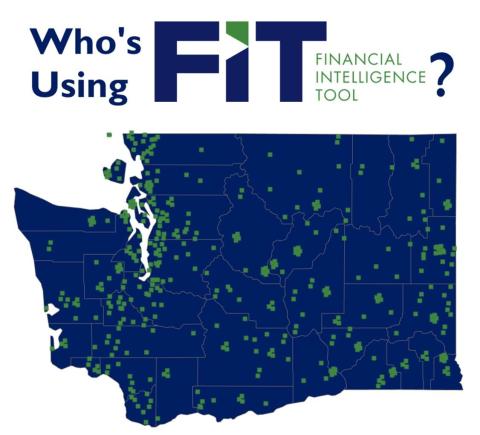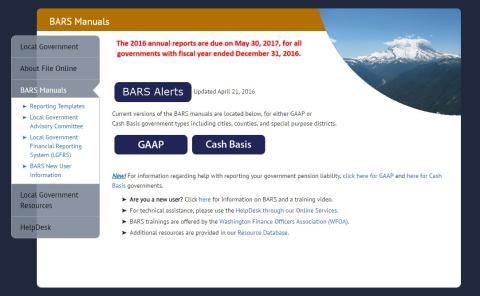The Audit Connection Blog
New standard out for auditors assessing a government’s financial condition
Part of management’s responsibility for financial reporting and safeguarding of public resources is to regularly evaluate its financial condition and develop plans to address any serious issues. For financial reporting, both the Budgeting, Accounting and Reporting System (BARS) Manual and the Governmental Accounting Standards Board (GASB) Statement No. 56 require disclosure in the notes to the financial statements regarding any situations that give rise to a substantial doubt about the government’s ability to continue to operate, along with management’s plans to address the situation. ... CONTINUE READING
Brand name procurement carries extra requirements when using federal funds
In the Winter newsletter, there was an article clarifying the differences between brand name specification versus sole source procurement. There are additional requirements for brand name procurement when federal funding is used. ... CONTINUE READING
King County Water District No. 125 receives a Stewardship Award
Earlier this week, State Auditor Pat McCarthy recognized the King County Water District No. 125 for their commitment to making government work better and promoting a culture of accountability with a State Auditor’s Office Stewardship Award. ... CONTINUE READING
Washington Auditor’s acclaimed Financial Intelligence Tool to be an example of leading practice at Pew Charitable Trust national conference
The Office of the Washington State Auditor is a national leader in developing and applying tools to assess and display information about local governments’ financial condition. That’s why the Pew Charitable Trust has invited the Office of the Washington State Auditor to speak at its State and Local Fiscal Health Workshop on February 27 in Boston, Massachusetts. ... CONTINUE READING
Skamania County receives a State Auditor's Office Stewardship Award
State Auditor Pat McCarthy recognized Skamania County’s dedication to making government work better and its commitment to the audit process today with a State Auditor's Office Stewardship Award. Specifically, the County Auditor’s Office, Treasurer’s Office and Office of Financial Management have worked together to improve County processes and strengthen internal controls over the past several years. ... CONTINUE READING
Follow best practice, state law when using third party receipting vendor
Many local governments use a third-party receipting vendor to provide electronic payment options to their constituents. Best practice – and state law (RCW 39.58.080) – require local governments to have all funds directly deposited into their Public Deposit Protection Commission (PDPC)-approved bank account. ... CONTINUE READING
Office identifies audit emphasis areas for school districts
School districts have asked the State Auditor’s Office for advance notice of what areas upcoming audits will emphasize. The following list identifies areas auditors might focus on to help districts prepare for audits examining fiscal year 2017. These areas are general in nature, and as always the specific areas audited will be determined by a risk-based analysis. Local audit teams also are available all year to answer technical questions and point to additional guidance on specific audit areas. ... CONTINUE READING
SAO’s Performance Center: Leaner name, but excellent service is the same
The Local Government Performance Center has been renamed The Performance Center. ... CONTINUE READING
Name brand procurements versus sole source contracts
Local governments have the ability to specify a name brand during their procurement process. In these situations, the government should thoroughly document why only this specific manufacturer’s equipment is necessary to meet their operational needs, as well as why another manufacturer’s equipment could not substitute. This documentation should be maintained and periodically evaluated to ensure that the specific brand is still required. ... CONTINUE READING
Pensions and other postemployment benefits (OPEB) update
The GAAP and cash basis BARS manuals have been updated, and the 2017 pension worksheet, notes and RSI templates are now available on our website at www.sao.wa.gov. The 2017 DRS Participating Employer Financial Information (PEFI) report is available at www.drs.wa.gov. Now that you have the information and tools you need to begin calculating your 2017 pension numbers, this is a great time to get started. As in the past, our Office will provide one-on-one assistance to local governments with their calculations. ... CONTINUE READING










